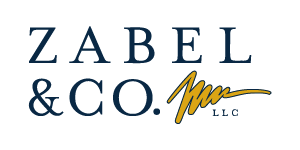According to McKinsey, high performers are using artificial intelligence to spur innovation, fuel growth, and reduce costs. Are you targeting these key focus areas with AI solutions to drive the value of your company? If not, you could get left behind.
The real opportunity lies in AI’s potential to empower employees and fuel strategic performance. In this way, well-implemented initiatives will translate into real valuation gains. Here’s what you need to know.
What Investors Are Looking For
Valuation experts consistently note that AI integration is now a recognizable and measurable value driver for private companies.
Companies that effectively implement AI tools across operations can achieve meaningful gains in productivity and profitability, supporting a higher valuation.
Advanced AI solutions can now touch on both quantitative financial outcomes and qualitative strategic positioning. This is one of the major factors that differentiate it from technologies of the past.
Finally, AI technologies that become proprietary assets will deliver added value as intellectual property, which appeals to savvy buyers and investors.
Examples of Value Creation With AI
Companies in virtually every sector are using AI in practical, value-oriented ways. Here are a few examples:
- Retail and logistics brands use AI to predict demand, optimize inventory, and automate distribution planning
- Administrative teams use AI to automate repetitive processes, which reduces cost and improves cash flow
- Finance organizations use AI to analyze vast datasets faster with fewer biases
These use cases drive home a vital point: AI is most valuable when it enhances human decision-making and performance. It is not simply a resource for replacing human labor.
The companies that see the best valuation uplifts are reimagining how work gets done with AI as a force multiplier.
AI Isn’t a Vacuum
There’s a growing concern that artificial intelligence will lead to massive workforce reductions. Some businesses are indeed scaling back traditional roles in light of automation capabilities, deploying artificial intelligence solutions to handle data aggregation, reporting, and other operational tasks.
However, laying off workers in anticipation of an AI tool’s yet-to-be-realized potential could backfire. A more sustainable strategy will involve empowering employees to work at their highest and best value using AI.
Linking AI to Strategic Value Metrics
M&A advisors and investors are looking for measurable improvements in key financial and strategic metrics like these:
- Productivity and profitability
- Faster top-line growth
- Scalability that makes the business more attractive to future buyers
While prospective investors will do some of this legwork during their due diligence period, it’s up to you to make this data easy to find.
When compiling value metrics, outline both current use cases and future opportunities. Focus on demonstrating how easy it will be to scale artificial intelligence initiatives into other areas of the business.
Start With Intentional AI Adoption
The most successful AI adoption strategies start by identifying high-value use cases and linking them to measurable outcomes, such as:
- Improved profitability
- Faster decision cycles
- Stronger customer retention
To minimize change resistance, get your team involved in the process early and often. Be transparent about why you want to adopt or expand AI and how you are going to use it to promote stronger value. From there, you will need to:
- Determine which use cases you will prioritize first
- Tie each initiative to specific financial or operational KPIs
- Train your team and redesign processes to embed AI into everyday work
Above all, the integration of AI into workflows must be thoughtful. Treat the technology as a complementary tool rather than a quick fix for all of your value challenges. The more collaborative you can make this process, the stronger your ROI will be and the shorter the time to value.
Using AI as a Value Catalyst
AI is a must-have for businesses in virtually every sector, but identifying when, where, and how to adopt it can be challenging. You can better drive value with artificial intelligence by seeking an outside perspective.
At Zabel & Co., our experts work alongside your in-house team to pinpoint high-potential use cases and enable your people to do higher-value work.
Are you ready to get started? Contact Zabel & Co. to learn more about our growth and profitability solutions.










